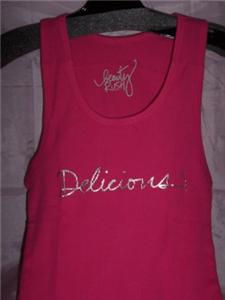Entries from August 1, 2010 - August 31, 2010
Judge to Defendant: Take Down Web Site or Pay $100 Per Day Sanction
 Screen shot from defendant’s Web site
Screen shot from defendant’s Web site
James Garcia’s having a tough time of it.
In August, Western District Judge Richard Jones gave the owner of defendant Seattle Roof Brokers a choice: either publish a statement on his Web site linking to the court’s order finding him liable for making false statements about plaintiff Certainteed Corp., or take all content offline until the court approves it. (Previous STL post here.)
Yesterday, the court found Mr. Garcia went in a different direction.
“Rather than publish the specific website content that the court authorized, Mr. Garcia published a website that not only substantially altered the content he had submitted to the court, but included a substantial amount of new content as well,” which Certainteed alleges is filled with false statements.
Without considering the truth or falsity of the statements, the court found that Mr. Garcia violated the court’s order.
Here’s its remedy.
“Accordingly, the court orders [Mr.] Garcia to take ‘offline’ all websites under this control (including seattleroofbroker.com and any similar sites). He shall do so no later than 12:00 p.m. on September 2, 2010, and the websites shall remain ‘offline’ until further order of the court. If he does not comply with this order, he will be deemed in contempt of court, and will, at a minimum, be subject to a sanction of $100 for each day that his website or websites remain online.”
The case cite is Certainteed Corp. v. Seattle Roof Brokers, No. 09-563 (W.D. Wash. Aug. 30, 2010) (Jones, J.).
Unclean Hands Defense Requires Egregious Acts that Are Related to Claim
Plaintiff Pom Wonderful LLC sells the POM WONDERFUL bottled pomegranate juice.
Defendant Welch Foods, Inc., sells various bottled juices under its WELCH brand.
In 2006, Welch developed a juice blend it named “Welch’s 100% White Grape Pomegranate.” The ingredient declaration identifies the juices used in the product, namely white grape, apple, and pomegranate juices (from concentrate), but does not does not disclose the percentage of any of the juices.
In January 2009, Pom filed suit in the Central District of California for false advertising based on Welch’s use of the word “pomegranate” because the product allegedly contains very little pomegranate juice.
After a number of other motions, Welch filed a motion for summary judgment on its unclean hands defense. Welch argued that Pom had engaged in the same kind of conduct that Pom alleges is deceptive and misleading, including Pom’s failure to disclose that its 100% pomegranate juice product at one point contained elderberry and Pom’s sale of juice blends that, at one point, contained juices other than those identified in the product name.
The Central District of California concluded these facts were not sufficiently “egregious” or causally related to consumer deception to sustain Welch’s unclean hands claim on summary judgment.
“The Court finds that while Welch has offered undisputed evidence of Pom’s misleading label, Welch has not demonstrated by clear and convincing evidence that Pom’s conduct was ‘egregious.’ Welch has not offered evidence that Pom’s deception was material, i.e. that it induced customers to purchase a product that they otherwise might not have purchased. Welch has not attempted to link Pom’s inclusion of trace amounts of elderberry juice in its 100% Pomegranate Juice to consumer deception or harm. Its only evidence is that one customer called Pom asking whether ‘the plain pomegranate juice [has] any other ingredients in it’ and another customer stated to a Pom customer service representative: ‘I noticed on the bottle it says pomegranate juice from concentrate with added natural flavors. This implies that it is not 100 percent pomegranate juice …’ This anecdotal evidence, while unrefuted, does not establish that any appreciable number of consumers were confused such that Pom’s conduct could be deemed ‘egregious.’ Welch’s failure to demonstrate the existence or extent of harm caused by Pom’s deception precludes a finding that it would be inequitable for Pom to proceed on its claims.”
Unclean hands doesn’t simply mean the plaintiff was a bad actor. It means that the plaintiff has “dirtied his hands in acquiring the right presently asserted.”
The case cite is Pom Wonderful v. Welch Foods, Inc., 2010 WL 3368430, No. 09-567 (C.D. Calif. Aug. 25, 2010).
Nickelodeon's "Visual System" Functional, Not Protectable as Trade Dress
Plaintiff and counterclaim defendant The Jumpitz Corp. is a San Diego-based performance group that performs live song and dance for preschool-aged children. It also markets itself through its Web site, www.jumpitz.com. It first used the JUMPITZ mark in December 2007.
Defendant and counterclaim plaintiff Viacom International, Inc., owns the MTV and Nickelodeon television networks. On or about May 1, 2009, MTV began marketing a live-action children’s television program called “The JumpArounds” (a name it later changed to “The Fresh Beat Band”).
On May 15, 2009, Jumpitz filed suit in the Southern District of California for trademark and trade dress infringement. Viacom counterclaimed for trade dress infringement.
In particular, Viacom alleged that Jumpitz infringed Viacom’s trade dress by infringing Nickelodeon’s “visual system,” which Viacom asserted is made up a particular color palette (“distinctive shades of orange, green, and cyan blue”) and design (“‘soft’ and ‘whimsical’ geometric shapes as mortise or framing devices”). Viacom defined a “visual system” as “the visual expression of a brand, including through color, imagery, and typography, so as to promote a consistent, coherent, and distinctive brand image.”
Jumpitz moved for summary judgment.
On Aug. 13, the court found Viacom’s “visual system” was functional and, therefore, was not protectable as trade dress.
Its discussion is interesting.
The court noted Nickelodeon’s creative director, Richard Hicks, admitted that “‘A significant portion of Nickelodeon’s audiences is comprised of young children, many of whom are not yet of reading age and therefore identify brands not by words but instead by visual elements, including colors and shapes.’ Mr. Hicks also states, ‘Colors are among the first things children are able to distinguish ….’ This evidence demonstrates that the use of colors is important to Viacom because of the limited cognitive abilities of children, the intended audience, not to distinguish its brand from other competitors in the market. Furthermore, there is no evidence in the record to demonstrate that Viacom’s use of ‘simple yet whimsical shapes’ is Viacom’s attempt at distinguishing the Nickelodeon brand from other competitors. Rather, it appears to be Viacom’s attempt to appeal to children, who are inherently less adept at cognitive functioning. Thus, the Court is not convinced that Viacom has adequately carried its burden of demonstrating that its ‘visual system’ is non-functional.”
The court added: “[T]he Court would be remiss if it did not express its concerns over affording trade dress protection to Nickelodeon’s broadly defined ‘visual system.’ Children present a unique audience and companies attempting to reach children must figure out how to reach children in light of their limited cognitive abilities. The use of bright, fun colors and whimsical, playful shapes are not quintessential Nickelodeon; they are tools that companies have used for years to reach children. Allowing Viacom to assert a protectable interest in its broadly defined ‘visual system’ would stifle competitors in the filed of children’s entertainment in a way not contemplated by the Lanham Act.”
The case cite is The Jumpitz Corp. v. Viacom Int’l, Inc., 2010 WL 3238953, No. 09-1063 (S.D. Calif. Aug. 13, 2010).
Ninth Circuit Finds Infringement Not Willful, Refuses Award of Profits
HydraMedia Corp. appealed the Central District of California’s finding that Hydra Media Group Inc.’s trademark infringement was not willful.
On Aug. 12, the Ninth Circuit affirmed.
The way the Ninth Circuit tells the story, it’s pretty clear-cut.
“Defendant initially adopted the contested mark, HYDRAMEDIA, before it knew that Plaintiff even existed. When Defendant discovered Plaintiff’s use of a similar mark, it relied on in-house counsel’s opinion that there was little likelihood of confusion based on the companies’ distinct services. Defendant enjoyed a strong reputation and there was no evidence that it sought to mislead consumers or usurp any goodwill associated with Plaintiff’s mark. Under such circumstances, Defendant’s infringement was not willful.”
The Ninth Circuit also affirmed the district court’s refusal to award an accounting of defendant’s profits, which also makes sense given its finding that the infringement was not willful.
“Our decisions regarding an award of profits emphasize the importance of willfulness in the analysis. ‘Indeed, this court has cautioned that an accounting is proper only where the defendant is attempting to gain the value of an established name of another.’ Defendant was not trading off Plaintiff’s name. Defendant’s infringement was not willful. The district court did not abuse its discretion by denying Plaintiff’s motion for an award of profits.”
The case cite is HydraMedia Corp. v. Hydra Media Group Inc., 2010 WL 3190611, Nos. 09-55237, 09-56047, and 09-56050 (9th Cir. Aug. 12, 2010).
Delicious Trademark Dispute Not Appropriate for Summary Judgment
Trademark disputes aren’t usually appropriate for being decided on summary judgment.
That’s what the Ninth Circuit reiterated last week in Fortune Dynamic, Inc. v. Victoria’s Secret Stores Brand Management, Inc.
 In that case, Victoria’s Secret sold or gave away hot pink tank tops with the word “Delicious” printed across the front. The purpose of its efforts was to promote its BEAUTY RUSH beauty products.
In that case, Victoria’s Secret sold or gave away hot pink tank tops with the word “Delicious” printed across the front. The purpose of its efforts was to promote its BEAUTY RUSH beauty products.
Fortune Dynamic sued, alleging that Victoria’s Secret’s use infringed its incontestable registration for DELICIOUS for footwear.
As the Ninth Circuit later summarized, “Victoria’s Secret executives offered two explanations for using the word ‘Delicious’ on the tank top. First, they suggested that it accurately described the taste of the BEAUTY RUSH lip glosses and the smell of the BEAUTY RUSH body care. Second, they thought that the word served as a ‘playful self-descriptor,’ as if the woman wearing the top is saying, ‘I’m delicious.’”
The Central District of California granted summary judgment in Victoria’s Secret’s favor.
Fortune Dynamic appealed to the Ninth Circuit.
The Ninth Circuit reversed and remanded, finding that it was not appropriate for the district court to decide that no likelihood of confusion existed and that the fair use doctrine applied as a matter of law.
“This case is yet another example of the wisdom of the well-established principle that ‘[b]ecause of the intensely factual nature of trademark disputes, summary judgment is generally disfavored in the trademark arena,’” the court said. “We are far from certain that consumers were likely to be confused as to the source of Victoria’s Secret’s pink tank top, but we are confident that the question is close enough that it should be answered as a matter of fact by a jury, not as a matter of law by a court.
“The same is true of Victoria’s Secret’s reliance on the Lanham Act’s fair use defense. Although it is possible that Victoria’s Secret used the term ‘Delicious’ fairly — that is, in its ‘primary, descriptive sense’ — we think that a jury is better positioned to make that determination.”
The case cite is Fortune Dynamic, Inc. v. Victoria’s Secret Stores Brand Management, Inc., __ F.3d __, 2010 WL 3258703, No. 08-56291 (9th Cir. Aug. 19, 2010).
Photo credit: Borrowed from The Briefcase: Commentary and Analysis of Ohio Law
